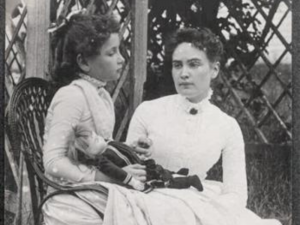Did you know that music therapy began as a formal profession in the United States post World War II? In order to improve motivation for patients towards healing and rehabilitation, musicians and music educators introduced music into hospital settings. That is why we now have accredited, licensed music therapists and various music therapy intervention programs that are being offered across the country.
One can say that there is nothing more uplifting or galvanizing than the energy and power of music. Have you or your child experienced times when you are physically or emotionally hurting and/or experiencing some sort of heightened situation? Then, suddenly a piece of music plays or a favorite song comes on and you are suddenly transported to another place that cannot be explained or even put into words? You are carried away and lost in another dimension where all your worries and pains are forgotten for that time. Possibly, the music is reconnecting you with your essence self and allowing for something unexplainable that goes beyond medical intervention.
Research has shown that music therapy is a vital instrument in the healing process during hospitalization as well as when your child/youth leaves the hospital setting. There are credentialed music therapists who provide music therapy treatment plans one to one or within pediatric music therapy groups to further assist the recovery process once your loved one leaves the hospital.
Benefits of Music Therapy Treatment Post Hospitalization
For children music can be a fun way to learn, relax, and work through tough emotional or physical situations. It can help with communication, social skills and with countless other abilities. In fact, it’s also been shown to reduce stress which aids with the health of their immune system.
With all post hospitalization cases, here at the Center for Musical Therapy, we utilize and customize musical interactions to address the individualized needs of the patient. Once an assessment of the patient is completed, each session is individualized and designed to specifically fit the needs of your child/teen. Exercises are selected to teach techniques to support with:
Additional Areas that Music Therapy Can Help With
Studies have shown that music therapy is highly effective for kids and teens because it is non-threatening. Also, it has been shown that both playing and listening to music involves the entire brain, including areas that control movement, speech, reward, emotional processing and memory. Overall, improvements are seen with:
-
Overall physical rehabilitation.
-
Fine and gross motor development.
-
Improved speech and language skills.
-
Increasing motivation to continue to be engaged in their post care medical treatment.
-
Providing emotional assistance for clients and their families.
-
Providing an outlet for the expression of feelings.
Here at the Center for Music Therapy we work with your child/teen in a tailored therapeutic plan to empower them to manage:
-
Chronic and acute pain.
-
Anxiety and depression.
-
Chronic illness and terminal diseases.
-
Emotional crisis.
-
Developmental disorders, psychiatric disorders, and releasing psychological trauma (which a child usually keeps bottled up inside).
-
Neurological disorders.
-
Sensory impairments, stress, and much more.
According to Susan Shurin, M.D., Chief of Pediatric-Hematology, Oncology at the Ireland Cancer Center in Cleveland, Ohio, comments on the effectiveness of music therapy:
“Music therapy enables people to sometimes put words together in ways that are hard for them to do otherwise. …[I]t often seems to be easier if [the patient] has the rhythm and cadence that comes along with music. Particularly with people with certain kinds of neurological deficits I think that [music therapy] can be very helpful. The music seems to get through to the patient and in many ways it enables [the patient] to get through to us which [may be] very hard to do with any other modality.”
Here is what you can expect on the first meeting with a music therapist: assessment will be given to measure the patient’s abilities, then goals are set up, and from there an action plan is created for future appointments. Typically, a session can take anywhere from 15 to 60 minutes which could include the therapist providing music or the therapist and patient making music together. Since the plan is customized to the individual’s needs, a meeting can be as simple as chanting and singing to involving something more complex like recording a song. Another option would be to incorporate musical activities such as creating, singing, moving to and listening to music.
Sessions are conducted either in-person, in pediatric music therapy groups or can be arranged through Telehealth appointments. Parents and/or guardians are welcome to join and encouraged to do so.
As a board certified music therapist with an extensive number of years practicing, know that I am here to support your journey to shifting from pain and surviving to healing and thriving again. It is an honor for me to provide comfort and care to my patients through music. I am here to accompany your child through both the pain and joy. As a parent, know that I am here to walk with you through both the challenges and the laughter.











